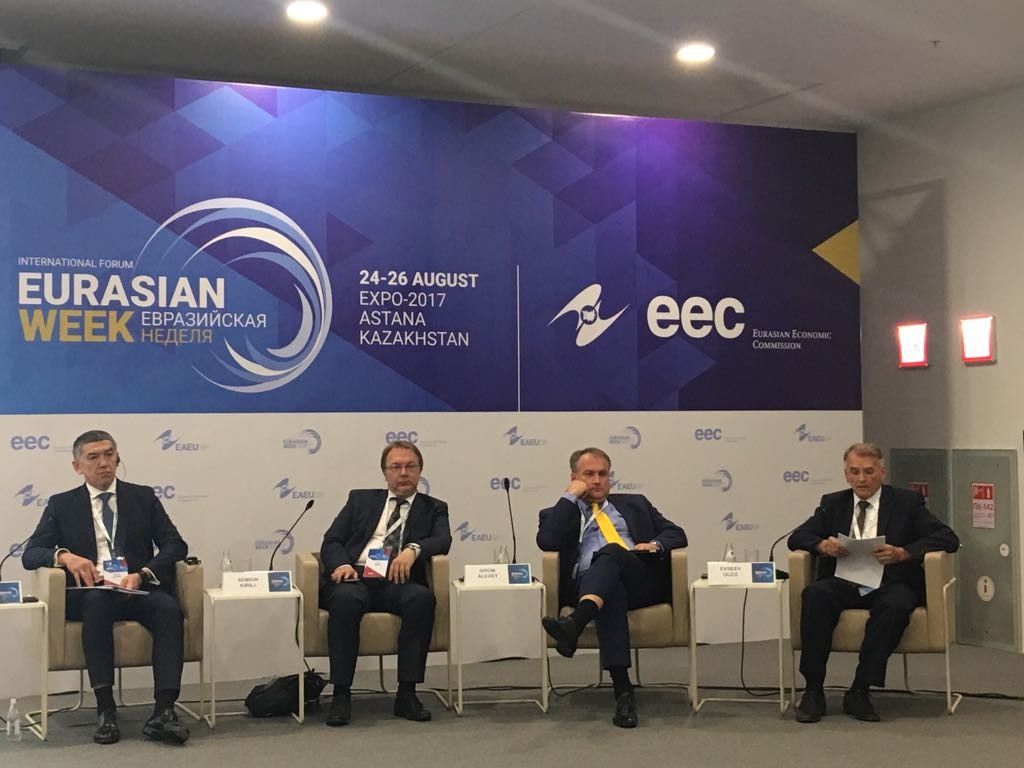ASTANA – A conference called Drivers of Transport Development was held in the capital Aug. 28 in conjunction with the Eurasian Week international forum. The agenda focused on digital transformation in the transport industry and the Eurasian Economic Commission’s (EAEC) cooperation with the Silk Road Economic Belt, including a report by Kazakhstan Temir Zholy (KTZ) on its plans to boost the digitalisation process.
KTZ Chief Engineer Batyr Kotyrev presented an introduction about innovative technologies in transport and spoke about the importance of ensuring high level, efficiency transport and logistics services. As a result, there is a need to make qualitative changes in infrastructure, service and institutional environment.
Kotyrev emphasised that simplifying and accelerating customs procedures, improving logistics and tracking and controlling cargoes throughout the supply chain are essential for the industry. He also stressed digitising the transport and logistics complex to ensure transparency, improve efficiency and reduce operating costs.
“Taking into account these and other factors, Kazakhstan Temir Zholy implements a set of measures for innovative and technological development, providing for a phased transition to the digitalisation of the company’s business,” he said.
Kotyrev indicated new technological platforms such as the multi-rail system, contractual and commercial work and energy dispatch traction have been introduced in the railway industry, which completely corresponds to the goals of this year’s state-of-the-nation address – “The Third Modernisation of Kazakhstan: Global Competitiveness.” In accordance with the national programme, KTZ has created Digital Railway.
“The strategy provides for digitalisation of the company’s business model and the introduction of new technologies in all key operating segments: freight and passenger transportation, infrastructure and transport logistics,” he said.
The company is planning to introduce a multimodal transportation management system and terminals in the transport logistics sector, an intelligent planning and management system for freight rail transport. The strategy also includes operating and maintaining infrastructure, using a high-tech diagnostics system based on the Magistral Automated Control System and constructing a wireless network based on the LTE-R standard.
Introducing satellite Internet in passenger trains and equipping stations with digital services will allow the national railway to switch to electronic ticket sales and provide a new level of passenger service.
Using modern information technologies is a top priority for the company, as they will increase the efficiency of all processes, number and quality of services provided and level of competitiveness and client-centeredness, said Kotyrev.

